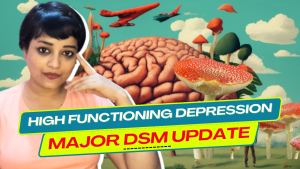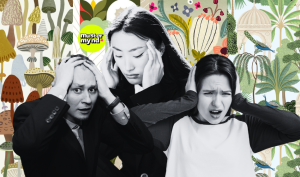Botox, a bacterial toxin-derived medicine, has grown in popularity for its ability to treat a variety of ailments, including wrinkles, headaches, muscular spasms, excessive sweating, and incontinence. To explore the influence of Botox therapy on depression, I came across researchers at the University of California San Diego’s Skaggs School of Pharmacy and Pharmaceutical Sciences using the FDA’s Adverse Effect Reporting System (FAERS) database. Their findings indicated an unexpected association between Botox injections and a lower incidence of depression.
Examining the FAERS Database
The research team, led by Ruben Abagyan, Ph.D., a professor of pharmacy, analyzed data from approximately 40,000 FAERS reports in which people discussed their experiences after obtaining Botox injections for various reasons. These studies covered a variety of injection sites, not just the forehead. The researchers wanted to compare the prevalence of sadness among Botox patients to those undergoing alternative therapies for similar problems.
The Impact of Botox on Depression
The researchers discovered that patients who received Botox injections experienced depression considerably less frequently than those who received other treatments. This finding called into question the concept that Botox’s effect on depression was mainly due to the treatment of frown lines on the forehead. According to Dr. Abagyan, the mechanism underlying Botox’s antidepressant effect appears to be more complex and not restricted to a single injection site.
Validation and Implications
The study was co-led by Tigran Makunts, PharmD, a former pharmacy student and current FDA research fellow, and Marc Axel Wollmer, MD, a psychiatrist and researcher in Germany. They observed that this discovery opens up new avenues for treating depression, a common and potentially crippling mental condition. Makunts stressed that the conclusions were based on a large dataset, offering statistical evidence rather than anecdotal impressions.
Limitations and Future Research
It should be noted that the study did not specifically collect data to investigate the relationship between Botox use and depression. Furthermore, the FAERS data only included reports from people who had negative side effects after having Botox. While the researchers removed reports of people taking antidepressants at the same time, there could have been underreported usage of other prescription and over-the-counter drugs.
Ongoing Clinical Trials and Mechanism of Action
Clinical trials are now being conducted to explore the efficacy of Botox treatment for depression. These trials are solely focused on forehead injections. However, Abagyan believes that further research is needed to discover the best site and dosage for delivering Botox, especially for treating depression. Botox’s precise mechanism of action as an antidepressant is uncertain. Botox may reach parts of the central nervous system involved in mood and emotions, or its success in treating underlying chronic illnesses may indirectly reduce depression, according to the researchers.
Exploring Therapeutic Options
Depression affects approximately 264 million people worldwide, and existing treatments, such as psychotherapy and various drugs, are ineffective for a large proportion of patients. As a result, researchers and physicians are actively looking into alternative therapeutic methods such as electroconvulsive therapy, transcranial magnetic stimulation, ketamine infusions, and Botox injections in the forehead.
Conclusion: Botox Therapy for Depression
The surprising association between Botox therapy and lower rates of depression opens us a new route for researching potential remedies for this common mental health disease. While more clinical studies and research are needed to validate and understand the mechanism underlying Botox’s antidepressant benefits, this study provides hope for people suffering from depression and adds to the increasing body of knowledge in the field of psychiatry. If the efficacy of Botox in treating depression is proven, it may provide a new option for people who haven’t reacted well to other therapies.
Given that the World Health Organisation estimates that over 264 million people worldwide suffer from depression, finding effective and affordable treatments is critical. The ability of Botox to reduce depression is a once-in-a-lifetime opportunity to address this major worldwide health concern. However, it is critical to proceed with caution and to conduct further rigorous scientific research to validate and optimize the use of Botox as a treatment for depression.




